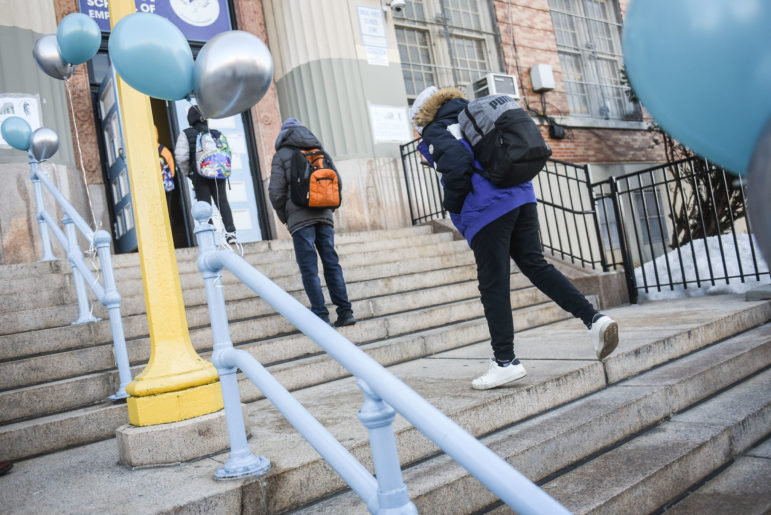Absentee landlords may not be the only ones who suffer from a new tax on their one-, two- and three-family buildings.
According to a report released last week by the Independent Budget Office, the tenants in those apartments — particularly in the city’s poorest neighborhoods — are likely to take a hit, too.
To encourage home ownership, state law taxes owners of one- to three- family homes at lower rates than owners of larger buildings. But some of these property owners do not actually live in their buildings, so Mayor Michael Bloomberg and City Council Speaker Gifford Miller, with the blessing of the state, passed a bill raising the property taxes on absentee landlords’ properties by 25 percent, or an average of $570.
When he signed the law in July, the mayor estimated it would affect about 75,000 properties and would bring in $44 million for the city next year.
The IBO says the effects of the tax will be much more widespread, however. After analyzing the 2000 Census data, the budget watchdog group concluded that the new tax could affect as many as 130,000 buildings. While this would boost the cash coming to the city — to $76 million — the IBO predicts it will hit low-income tenants hard, particularly those in East New York, Bed-Stuy and Bensonhurst.
Those neighborhoods tend to have larger concentrations of properties owned by absentee landlords, the report found. And because most apartments in small buildings are not rent regulated, the IBO adds, landlords are likely to raise rents as much as they can to make up for the tax increase.
Accusing the IBO of fabricating its numbers “out of thin air,” Miller called that theory nonsense. His spokesperson Chris Policano explained, “There is no reason to believe that rents will be any higher in these unregulated apartments because it’s already what the market can bear.”
The landlords, however, say they are both wrong. The tenants will not get hit with rent hikes, said Roberta Bernstein, president of Small Properties Owners of New York. She said the market has forced some of her members to reduce rents. But their quality of life could suffer since the owners will have less money to invest in their buildings. Said Bernstein, “I think it’s a gross error on the part of the city.”








